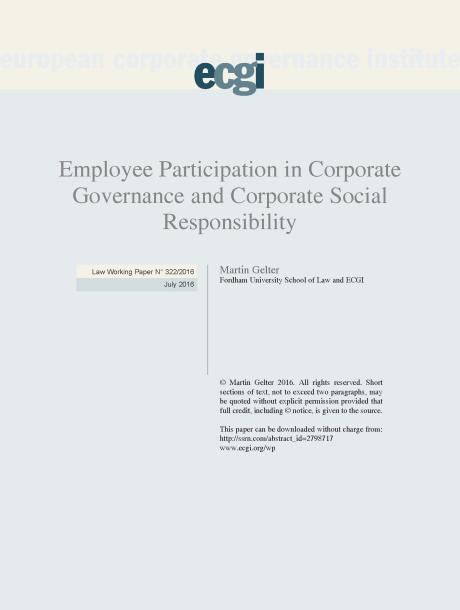
Employee Participation in Corporate Governance and Corporate Social Responsibility
Abstract
The chapter investigates the impact of employee participation on the board of directors or supervisory board (particularly codetermination) on corporate social responsibility (CSR). Conceptually, it is important to distinguish between ?internal? and ?external? CSR. Internal CSR relates to practices of the firm regarding groups with which it is in a long-term contractual relationship such as employees. Employee participation systems serve to protect employees from shareholder opportunism and shift the balance in the distribution of corporate rents in favor of employees, which is why they clearly have an impact on internal CSR. The situation is much less clear for external CSR, which is concerned with effects of corporate activities that are externalities, for example pollution. I argue that there may sometimes be a tradeoff between internal and external CSR: If a firm is more profitable because it scores badly in terms of external CSR (e.g. because it habitually pollutes), employees may benefit similarly as shareholders. In fact, the interests of shareholders and employees may be largely aligned in this respect, with both either benefiting or being harmed concurrently.







